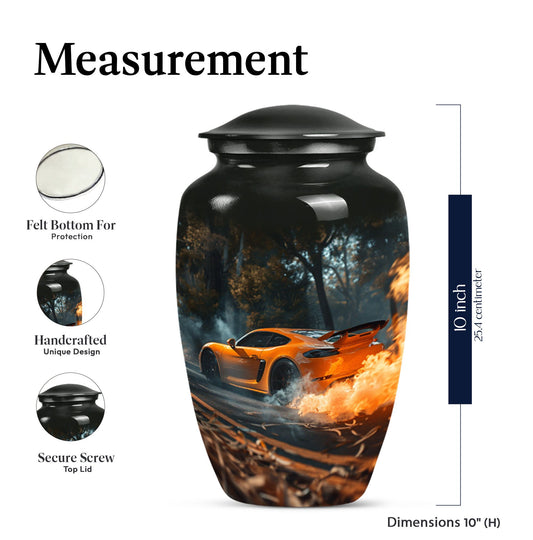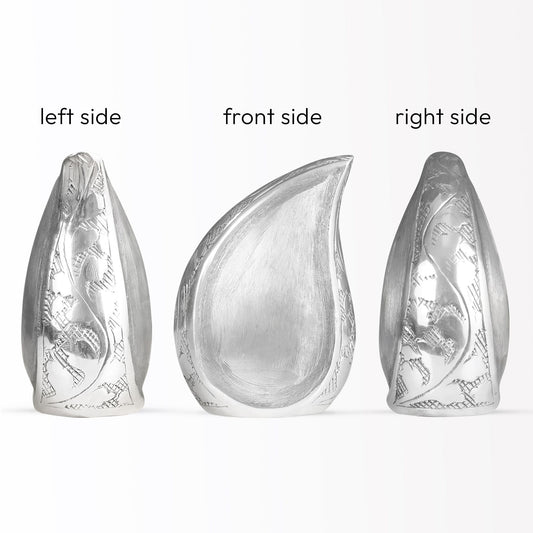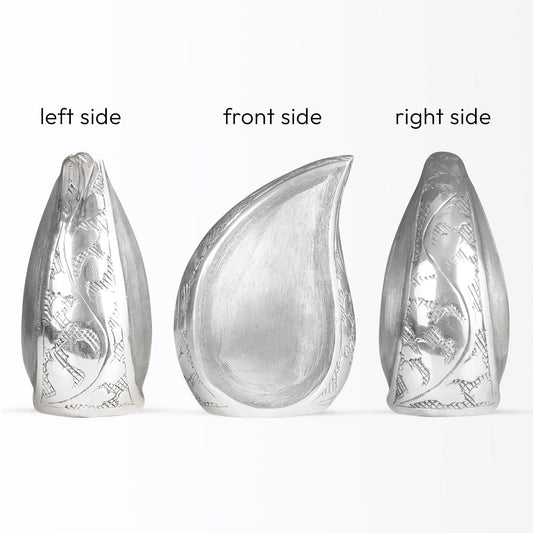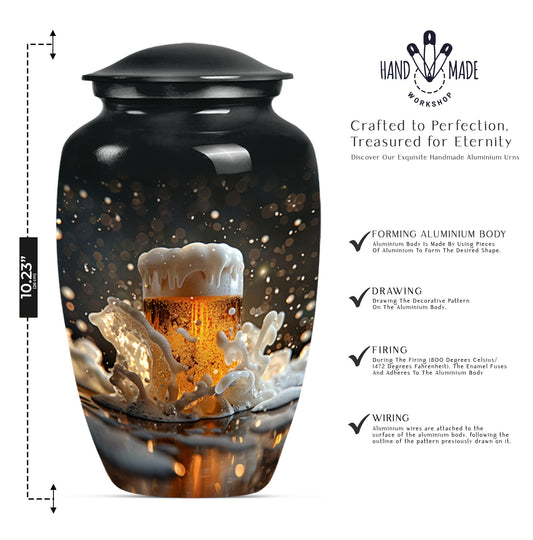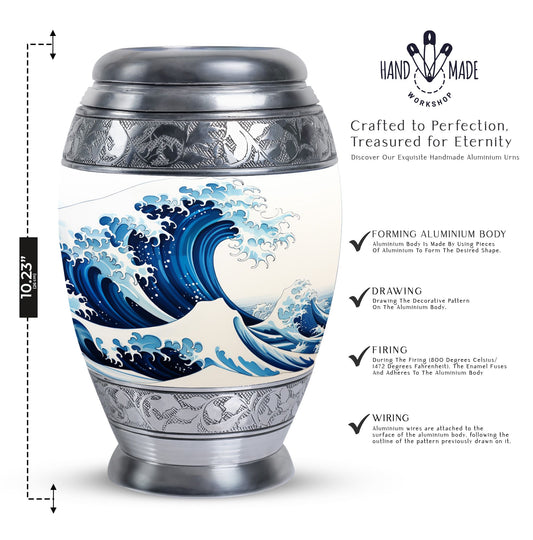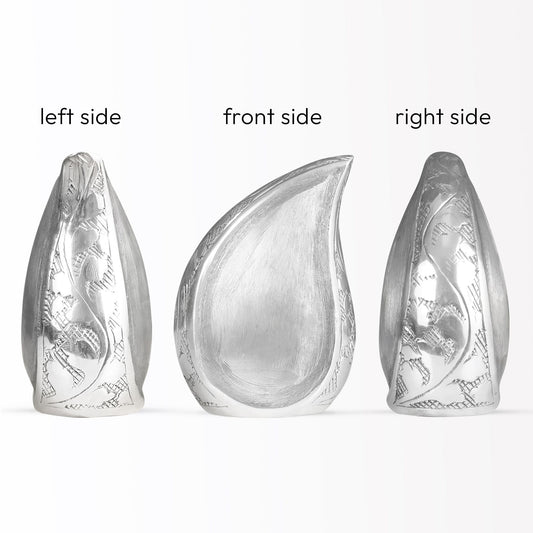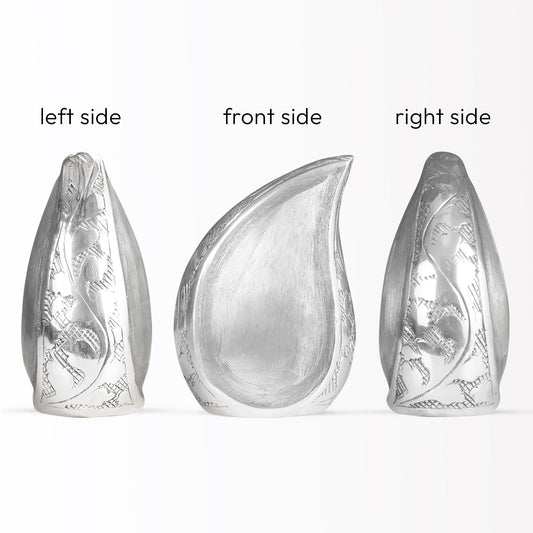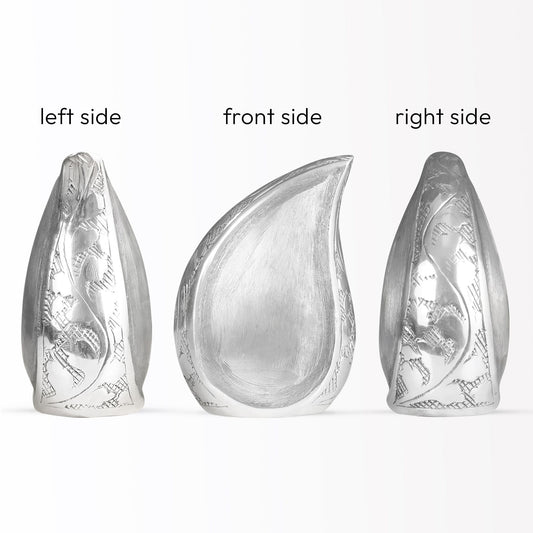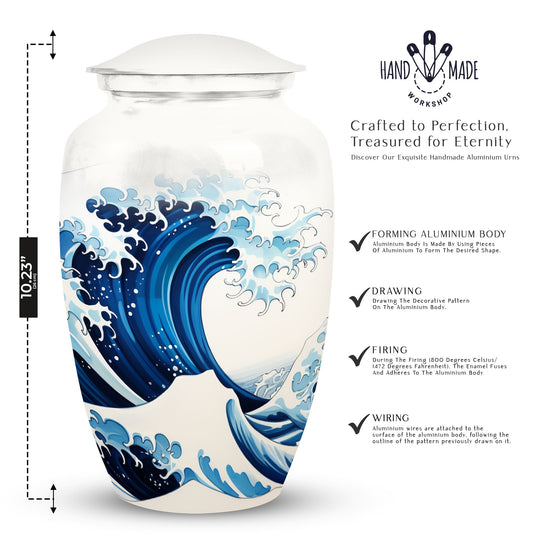Popular Urns
Understanding the Laws on Cremation in Hawaii: Meaning and Specificities

Hawaii cremation is, in many ways, an application of changing cultural attitudes toward death and memorialization. Thus, it becomes a widely accepted mode of final disposition in Hawaii.
Indeed, the State of Hawaii has laws governing cremation processes thereby conducting it with dignity and respect. Awareness of those laws helps those families to navigate the complexities involved in making such end-of-life arrangements.
Overview of Hawaii Cremation Laws:

HRS Chapter 441 controls the laws on cremation in Hawaii. The following, however, must take place before a cremation will occur: An authorization must first be given, preferably from the legal next of kin or an authorized person of the deceased, such as the executor of the estate.
The authorization for cremation is confirmed and obtained in writing from the individual who issued this authorization through a signed consent form, which is formal approval for the cremation. Among the conditions required to justify authorization is the identification of a deceased person before cremation.
This requires the use of official documents in recognizing one's identity for proper and no mix-up handling before the cremation process.
Significance of Hawaii's Laws regarding Cremation:
The cremation statutes of Hawaii are important because they are rooted in consumer protection and ethics. In this way, the state is able to shelter its families at a point like this from being taken advantage of by service providers. Licensed funeral homes and crematories are held to strict guidelines; the state promotes transparency and accountability in the cremation process; and it brings peace of mind to families in case their loved ones are treated with the utmost care and respect.

The law also provides a structured framework based on the emotional complexities of death. The authorization and identification processes will help families make rational decisions while still experiencing grieving, clearing much confusion and stress in planning for cremation for families around the death process.
Major Hawaii Cremation Statutes:
Here are several notable key features regarding Hawaii's cremation laws, reflecting both practical necessity and ethical responsibility. The first such requirement is that of a waiting period. In Hawaii, in fact, a minimum of 24 hours must elapse from the time of death before cremation can take place, though a physician may waive the waiting period in certain circumstances.
Thus, in its turn, this minimizes hasty actions for families attempting to process their grief while taking their time to finalize the necessary arrangements.

Another characteristic is the licensure of crematories. Hawaii requires that its crematories must be licensed and regulated by the state. This in turn means that they have to comply with health and safety standards. Regulation on this is truly important in order to maintain integrity in the process of cremation itself as well as public health.
Hawaii's laws also call for detailed records to be maintained in the cremation process. Licensed crematories should thus maintain an elaborate record of who the deceased person is, authorization for cremation, and the chain of custody. All this helps in preventing disputes over remains and giving correct information to families.
Conclusion:
From above, it can therefore be concluded that Hawaii's cremation laws offer a great framework on which families can ground their planning when it comes to their end lives. It is against such a backdrop that these laws are enacted to provide dignity and respect for cremation by underlining consumer protection, ethics, and clearly outlining the procedure.
All of this is important to understand so that decisions about cremation can be made. This in turn enables paying tribute and homage in a meaningful and personalized way to loved ones. As attitude and societal view regarding death and the memorialization process continue to evolve, so does the legal framework of Hawaii. It is ready to offer many benefits to families during such an impossible time.
ALSO READ:



















